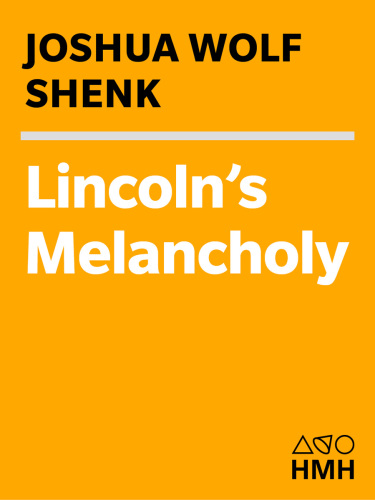
Lincoln's Melancholy
How Depression Challenged a President and Fueled His Greatness
کتاب های مرتبط
- اطلاعات
- نقد و بررسی
- دیدگاه کاربران
نقد و بررسی

July 11, 2005
Abe the Emancipator, argues Washington Monthly
contributor Shenk, struggled with persistent clinical depression. The first major bout came in his 20s, and the disease dogged him for the rest of his life. That Lincoln suffered from "melancholy" isn't new. Shenk's innovation is in saying, first, that this knowledge can be illuminated by today's understanding of depression and, second, that our understanding of depression can be illuminated by the knowledge that depression was actually a source of Lincoln's greatness. Lincoln's strategies for dealing with it are worth noting today: at least once, he took a popular pill known as the "blue mass"—essentially mercury—and also once purchased cocaine. Further, Lincoln's famed sense of humor, suggests Shenk, may have been compensatory, and he also took refuge in poetry. Unlike Americans today, Shenk notes, 19th-century voters and pundits were more forgiving of psychological and emotional complexity, and a certain prophetic pessimism, he notes, was appropriate to the era of the Civil War. Occasionally, Shenk chases down an odd rabbit trail—an opening meditation on whether Lincoln was gay, for example, is neither conclusive nor apposite. Still, this is sensitive history, with important implications for the present.

October 31, 2005
Davidson delivers a fine performance in this exploration of Abraham Lincoln's depressive nature and its influence on his political life. From boyhood through assassination to legacy, Shenk probes all chambers of the 16th president's troubled heart. Davidson's voice is perfectly complementary for such historical and intimate matter, offering up an inviting rocking-chair-by-the-fire feel. So fitting is his voice that it feels anachronistic when Shenk veers into the present, bringing Davidson's earthy, log-cabin tones along with it. But the narration is, for the most part, flawless (save for a few surprising mispronunciations). Davidson's engagement with the material never flags despite the sometimes abrupt time-hopping and dense side paths Shenk periodically travels. Davidson recites several poems beautifully and renders an excellent Irish brogue. Listeners may find the musical cues confusing, though. For example, moody piano lines occasionally close out sections in the middle or latter part of a disc, falsely prompting the finger toward the eject button. The production also features several extras including a somewhat superfluous NPR-style interview with Shenk plus an excerpt from an upcoming Benjamin Franklin biography. Overall, despite a few quirks, a full and worthy listen. (Reviews, July 11)

























دیدگاه کاربران